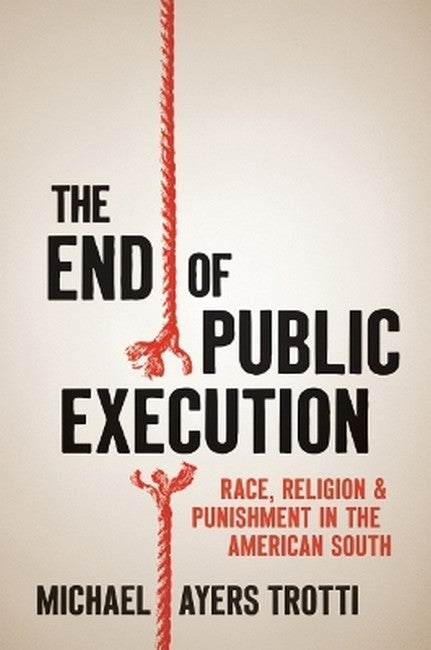Michael A. Trotti is professor of history at Ithaca College. He is the author of The Body in the Reservoir: Murder and Sensationalism in the South.
Request Academic Copy
Please copy the ISBN for submitting review copy form
Description
Impressive . . . . Trotti's work not only fills a gap in the literature but also upends long-held assumptions that have guided the scholarship of those studying extralegal punishment."--Journal of American History [Trotti's] triangular focus on race, religion, and public spectacles of violence is thought-provoking, intuitively written, and striking."--Journal of Church and State With this book, Trotti has set the stage for a new kind of history (and history of the present) of the death penalty in the United States. The book is detailed in its depiction of executions and yet broad in its theoretical as well as historical implications . . . . an important book in more ways than one."--Church History The End of Public Execution significantly contributes to understanding the history of capital punishment and the South. . . . Histories like this one make it impossible to deny that capital punishment in the United States has been inseparable from a legacy of white supremacy and provide compelling arguments for ending the practice."-Reading Religion [Trotti] weaves a wholly unexpected story for how the New South ended up at the electric chair. His narrative, backed by extensive evidence and data drawn from 1,300 executions carried out in the former Confederate states between the end of the Civil War and 1936, is less a story of the consolidation of state power through technological and political means than a history driven by the agency of Southern African Americans resisting a paranoid and reactive state."--The Civil War Monitor Recommended . . . . Trotti employs both quantitative and qualitative evidence to support his conclusions, and his detailed analyses of various datasets and statistics are particularly impressive."--CHOICE There is no doubt that Trotti's study is a seminal and highly readable intervention in a scholarly conversation that is very much in need of fresh methodological, theoretical and quantitative exploration."-Journal of Social History This excellent book will be useful to scholars in a variety of fields, particularly those in southern history, religious history, African American history, and the history of crime and punishment."-Journal of Southern History This focused study opens up vital questions about religion, public space, and punishment in American life and brings an ignored archive into view for American religion."--American Religion Trotti's book is a fascinating study of the subversive power of communal faith."--The Christian Century

